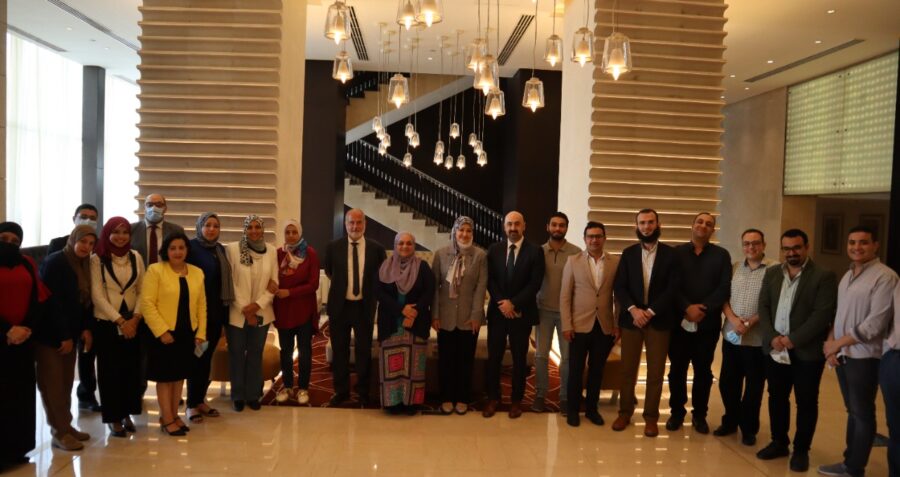Opioid Substitution Treatment

Key information
- Organisation: Middle East and North Africa Harm Reduction Association (MENAHRA)
- Country: Egypt
- Region: Middle East and North Africa
- Stage of innovation: Stage 2: Proof of concept developed
- Start date: 2021
- End date: 2021
- Type of innovation: Service innovation: new or improved service, Policy innovation: change to policy thinking or behavioural intentions
- Funder: Global Fund
Summary of intervention
Opioid substitution treatment (OST) is an intervention for drug dependence that reduces the likelihood of relapsing to injection and is an effective HIV prevention strategy. Traditionally, people who use drugs in Egypt have no access to needle and syringe programmes and OST was not permitted. Stigma prevails along with the common misconception that methadone is another drug that people will become addicted to.
MENAHRA carried out a scoping mission to discuss OST with civil society organisations, and, In 2015, applied to the Global Fund for a grant for a methadone pilot programme. This was supported by the Ministry of Health (Mental Health Department), UNAIDS, and other partners. However, the proposal faced opposition from the authorities, which led the Director General of Mental Health to suggest a potentially more acceptable approach — a pilot with 100 patients (small group) as a research study. This idea still faced fierce opposition.
UNODC and other partners played a key role in advocacy work, and, in 2021, the authorities approved the use of OST. Protocols and guidelines for its use in Egypt were developed, alongside an online system enabling prescribers to register patients to avoid duplication. MENHARA delivered training to psychologists, psychiatrists and nurses from the mental health Governmental hospitals from all the Governorates of Egypt.
learnings
According to the Mental Health Department, OST services would be rolled out in Egypt, but this has not happened. The government also planned for MENAHRA to organise civil society workshops on OST and tours to other programmes in the region but — again — this has not happened. Another challenge is that MENAHRA is a regional network that is not registered in Egypt, and the government is collaborating with national partners that are working under financial restrictions.
next steps
The turning point in advocacy with the government came about because the scientific community had campaigned for hepatitis treatment, leading to Egypt becoming a pioneer in hepatitis elimination. This gave credibility to the scientific community when it came to its campaign for OST.

